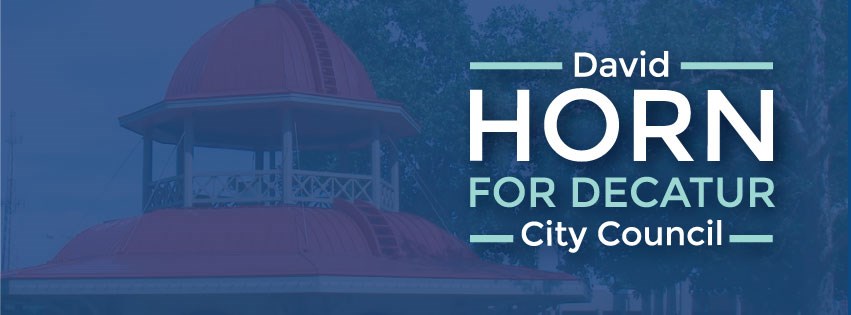
City of Decatur faces $4.2 million deficit in 2025
Even with large cuts to the city’s number one priority, community revitalization, the city faces a $4.2 million budget deficit in 2025. The budget includes a 5.1% increase in total property taxes collected, while foregoing new revenue by closing the utility tax loophole and raising an estimated $3.5 million annually (Closing the loophole impacts about 1% of the utility accounts in the city [450 of approximately 35,000]). In addition, the city continues to give an estimated $560,000 in annual revenue from cannabis sales to nearby municipalities. To pay for the deficit, the city proposes to drawdown its 90-day cash reserve to approximately 69 days.
It is difficult to see a pathway in which the city of Decatur’s population increases by decreasing the funding that we provide to improving neighborhoods. Enhancing where we live improves quality of life and reduces crime. For example, the city received a $1.25 million grant from the Howard G. Buffett Foundation in 2020 to fund demolitions, cleanups, and lot acquisitions in the Johns Hill Neighborhood. The neighborhood has seen a substantial reduction in crime since the neighborhood was improved (36% reduction in the count of offenses in July-June 2022-2023 vs. July-June 2018-2019), and a large increase in civic engagement that is critical to building the community.
Instead of replicating Decatur’s success, the city is cutting the budget to $1.5 million for demolitions and $300,000 for residential rehabs. Previously, staff estimated that the city needs to demolish 250-300 derelict properties per year to keep pace with the rate of blight. Assuming the average cost of demolition of a residential property is $15,000, the city would need a minimum of $3.75 million each year. The city is proposing an estimated 100 demolitions, a decrease of 33% in the 150 demolitions that are expected to occur in 2024. It is also important to note that demolitions are only one component of a wide-ranging community revitalization program.
The 5.1% increase in total property tax collected is also concerning. Currently, there are thousands of families in Decatur who are mortgage- or rent-distressed and 44% of Macon County residents do not make enough income to make ends meet. In the second quarter of 2023, Macon County, IL had the highest percentage of home loans underwater in the country (17.6%) and the likelihood of a Macon County property with a foreclosure filing was 12.9 times greater than the national average according to data from ATTOM. Adding to the challenges property owners face, according to a 2023 property tax analysis by ATTOM, Macon County had the 10th highest effective property tax rate in the U.S. at 2.13% (the national average is 0.87%). In other words, as the city’s population declined and family budget’s tightened, decisions by local governmental units have unwittingly resulted in residents paying the 10th highest effective property tax rate in the nation.
PLEASE EXPRESS YOUR VIEWS AT STUDY SESSION
The Decatur City Council will hold a study session on the proposed 2025 budget on Monday, October 14 at 5:30 PM in the council chambers located on the third floor of the Decatur Civic Center (1 Gary K. Anderson Place). Free parking is available in the lot immediately south of the entrance. Citizens are encouraged to attend meetings and express their views. At study sessions, citizens are allotted 3 minutes per person at the end of the meeting.
An agenda and the proposed budget can be found at: https://www.decaturil.gov/mayor-and-council/council-meetings/. If you would like to discuss the budget with a council member, phone numbers and email addresses for each council member can be found at the following link: https://www.decaturil.gov/300/Mayor-Council.
